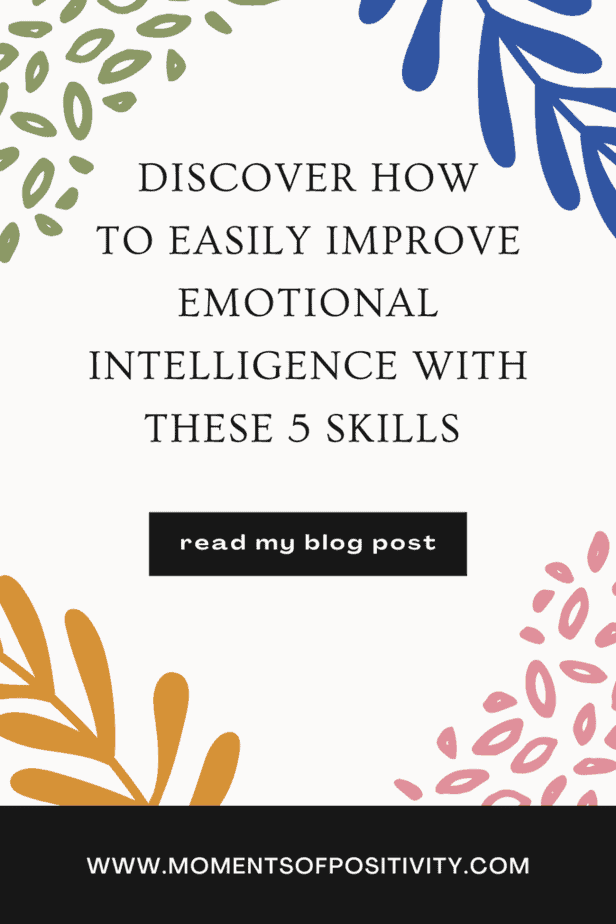Share this
As a society, we often focus on traditional measures of intelligence – IQ scores, academic achievements, and technical skills. However, research shows that emotional intelligence is just as important, if not more so, in determining success in personal and professional contexts. Emotional intelligence is the ability to recognize and understand emotions, both in oneself and in others, and to use that understanding to guide behavior and decision-making. In this article, we will explore the importance of emotional intelligence and provide five key skills to help you unlock this vital aspect of your personality.
Understanding the Importance of Emotional Intelligence
Emotional intelligence is crucial in both personal and professional contexts. In personal relationships, emotional intelligence helps us communicate effectively, resolve conflicts, and build strong connections with others. In the workplace, emotional intelligence is increasingly recognized as a key factor in success, particularly in leadership positions. Leaders with high emotional intelligence are better able to inspire and motivate their teams, handle conflicts, and make effective decisions.
Emotional intelligence is also becoming more important in the digital age. With social media and other online platforms, we are constantly bombarded with information and opinions from others. Being able to understand and navigate these emotional landscapes is essential for maintaining healthy relationships and avoiding conflicts.
5 Key Skills to Improve Emotional Intelligence
Self-awareness: Understanding Your Own Emotions
Being self-aware is an essential component of emotional intelligence. Self-awareness allows you to better understand your emotions, reactions, and behavior, as well as the emotions and reactions of those around you. It gives you the opportunity to make changes in your life to improve yourself and your relationships with others.
The most important element of being self-aware is the ability to recognize your own strengths and weaknesses. Once you can identify them, you can work on areas where you are lacking or need improvement. You can also identify what triggers certain feelings or reactions and then work on strategies to manage them in a healthy manner. Additionally, recognizing both positive and negative emotions is key for being self-aware. When we can identify and name our emotions, we can effectively process and express them to create positive outcomes.
There are many ways to develop self-awareness. One effective method is mindfulness meditation, which involves paying attention to your thoughts and emotions without judgment. Another is to keep a journal, where you can reflect on your thoughts and feelings and identify patterns over time. You can also seek feedback from others, such as trusted friends or a therapist, to gain a better understanding of how you are perceived by others.
Self-regulation: Managing Your Emotions
The ability to manage emotions involves understanding how your emotions affect your behavior, as well as being able to control or redirect your feelings. This means being aware of how you react to situations and making conscious efforts to choose a better response. It also involves managing stress and finding effective ways to cope with it, such as through exercise, mindfulness, or other forms of self-care.
Self-regulation requires a combination of self-discipline and self-compassion. You need to be able to set boundaries, manage stress, and control your impulses, while also being kind and understanding towards yourself when you make mistakes or experience difficult emotions.
There are many strategies for developing self-regulation skills. These can include breathing exercises, physical activity, mindfulness meditation, and cognitive-behavioral therapy.
Empathy: Understanding Others’ Emotions
Empathy is an important part of emotional intelligence, as it allows us to be sensitive and understanding of the needs and feelings of other people. Empathy involves being able to put ourselves in someone else’s shoes and understand how they feel, even if we don’t necessarily agree with them or their perspective. It is a valuable skill that helps us build relationships, trust and respect with others.
Empathy involves being able to listen actively, understand nonverbal cues, and show compassion towards others. It also involves being able to put yourself in someone else’s shoes and see things from their perspective.
There are many strategies for developing empathy, including active listening, asking open-ended questions, and practicing empathy exercises.
Motivation: Channeling Emotions to Achieve Goals

Emotions can be powerful motivators, both positive and negative. Emotional intelligence involves being able to channel your emotions toward achieving your goals, rather than being controlled by them.
It is important to be able to recognize and identify when you need a boost in motivation. Having the drive to take action and pursue goals is essential to improving your emotional intelligence. To become more motivated, start by setting realistic and achievable goals. Break these goals down into smaller tasks and set deadlines. Developing an action plan with these steps can help keep you on track and motivated. Celebrating successes, both big and small, is another way to stay motivated.
Being able to recognize the progress that you have made can help you stay focused on reaching your goal. Additionally, developing a support system of friends and family who are there to motivate and encourage you can also be helpful. Finally, having positive self-talk is an essential tool for keeping yourself motivated. Having positive thoughts about yourself, your capabilities, and your goals can be instrumental in getting motivated and staying that way.
Social Skills: Communicating and Building Relationships
Finally, emotional intelligence involves developing strong social skills. This means being able to communicate effectively, build strong relationships, and handle conflicts in a constructive way.
Social skills require a combination of emotional intelligence, communication skills, and conflict resolution skills. You need to be able to understand others’ emotions, express your own emotions clearly, and work collaboratively towards shared goals.
There are many strategies for developing social skills, including practicing active listening, assertiveness training, and conflict resolution skills.
Applications of Emotional Intelligence in Your Personal and Professional Life
Developing emotional intelligence can have a profound impact on your personal and professional life. In personal relationships, emotional intelligence can help you communicate more effectively, resolve conflicts, and build stronger connections with others. In the workplace, emotional intelligence can help you become a more effective leader, build stronger teams, and make better decisions.
Conclusion
Emotional intelligence is a vital aspect of our personality that is often overlooked. By developing emotional intelligence skills such as self-awareness, self-regulation, motivation, empathy, and social skills, we can improve our personal and professional relationships, become better leaders, and achieve our goals more effectively. So why not start unlocking your emotional intelligence today?





